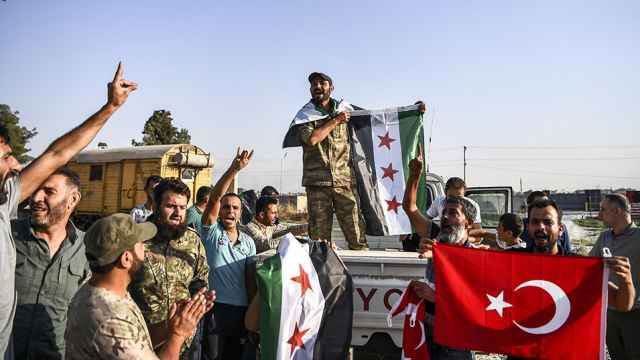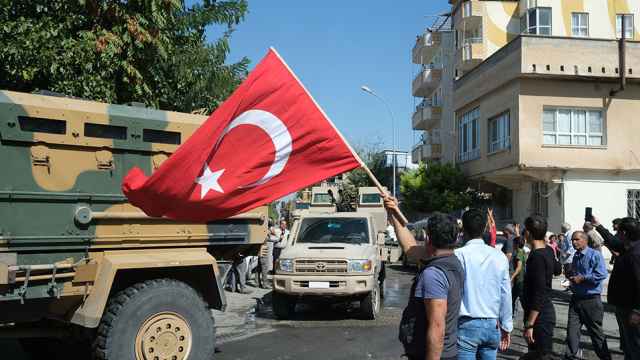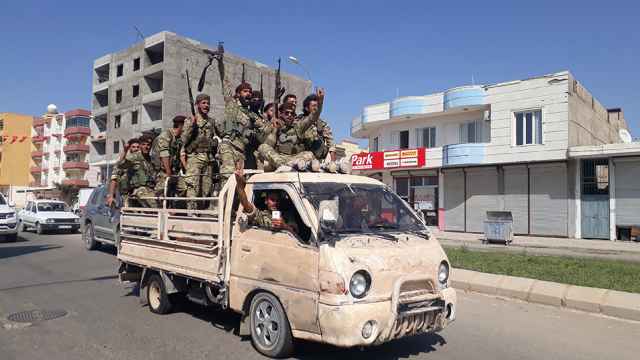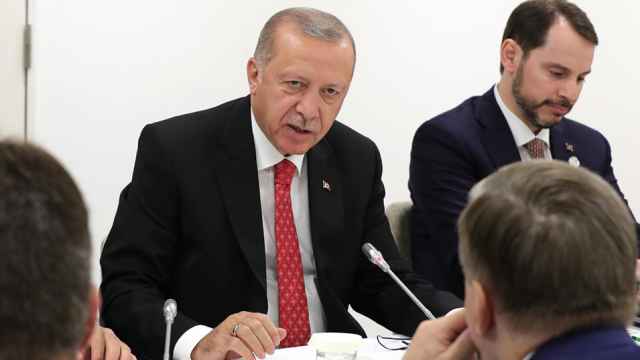The Syrian people achieved what once seemed impossible. They rid themselves of the brutal dictator who massacred hundreds of thousands in one of the most repressive states. Bashar al-Assad, infamous for his chemical attacks, war crimes, and alliances with Russia, Iran, and Hezbollah in his violent crackdown, fled to Russia as his regime crumbled.
This marked a monumental achievement for Syrians, whose resilience matched their relentless opposition to a brutal regime propped up for over a decade by foreign powers. Chief among them is Russia.
Syrian rebels seized Damascus unopposed after a lightning advance through the country, forcing Assad to seek asylum in Russia after a 13-year conflict and six decades of his family's autocratic rule. Assad now joins treasonous former Ukrainian president Yanukovych, another pro-Kremlin leader who fled to Russia.
For Russia, the fall of Assad is humiliating and a severe blow to its global image after Moscow spent over a decade keeping him in power. But despite its promises of unwavering support, Russia ultimately failed to prevent Assad's collapse — a stark reflection of its very limited resources.
There is also the question of how Russia’s military and intelligence missed signs that rebel forces were preparing an offensive. This failure allowed opposition fighters to overrun key territories, catching Assad’s regime and Moscow off guard. Rumors of the dismissal of Lieutenant General Sergey Kisel, who was in charge of Moscow’s operations in Syria, highlight growing discontent within Russia’s leadership, raising questions about its competence and signaling potential upheaval in the wake of its strategic failures in Syria.
Russia officially entered the Syrian conflict in 2015, launching airstrikes that targeted not only opposition groups but also civilian housing, schools, hospitals, and humanitarian corridors. For over a decade, Russia’s brutal tactics, including carpet bombing cities, mirrored the strategy it later used in its 2022 full-scale invasion of Ukraine. Yet, despite Moscow projecting ‘strength’, it was unable to stop the downfall of Assad’s regime.
Meanwhile, Russia granted Assad and his family asylum to reinforce its image as a loyal ally to authoritarian regimes, even in the face of their collapse. By publicly announcing the asylum, Moscow aimed to signal that it remains a reliable partner while managing the fallout from Assad’s downfall. Russia’s ambassador to Vienna stated as such on X: “#Assad and his family are in Moscow. Russia does not betray its friends in difficult situations. This is the difference between #Russia and the #US.” This decision followed criticism and outright anger from Russian military bloggers, who criticized the collapse of the Syrian army as a failure of leadership and corruption by the regime.
Russia’s involvement extended far beyond military backing and collaboration with Hezbollah and Iranian-backed militias. The Kremlin’s willingness to work with these groups — often using terrorist tactics — became a hallmark of its foreign policy. Russia set up joint control centers and shared intelligence, further embedding itself in the country. In addition to its military support, Russia supported Assad’s regime after it was accused of using poison gas and chemical weapons, systematically targeting civilians, committing war crimes, and leaving mass graves scattered across Syria. Russia also deployed mercenaries, including the infamous Wagner Group, who were responsible for committing horrific atrocities against civilians.
To obscure Assad's atrocities, Russia waged an aggressive disinformation campaign, framing the conflict as an internal war driven by opposition forces rather than the regime's brutality. This effort aimed to confuse the international community and obscure the true nature of the violence, making it harder to garner foreign support for the opposition. By labeling the opposition as “terrorists,” Russia falsely shifted blame for the violence, mass killings, and chemical attacks onto them, providing cover for Assad’s war crimes. This campaign not only protected the regime but also endangered opposition and humanitarian groups by seeking to undermine their credibility while millions of Syrians suffered.
Russia's mass propaganda was particularly effective in portraying the civil war as a complex internal dispute, much like the disinformation it spread in Ukraine after its illegal 2014 annexation of Crimea and occupation of Donbas. By framing the conflict as a rebellion, Russian disinformation confused the international community and prevented an appropriate response. Media outlets, often unknowingly, repeated these false narratives, further distorting the reality of the situation.
After the sudden fall of Assad’s regime, reports emerged of Moscow scrambling to withdraw its military assets from Syria, including moving naval ships out of Tartus. If true, claims that Russia sought Turkey’s assistance to ensure the safe evacuation of its forces added an extra layer of embarrassment for the Kremlin. Tartus, once a critical hub for projecting Russian power in the region, now symbolizes Moscow’s failure to sustain its foothold, casting doubt on its future influence in the Middle East.
Desperate to salvage some of its investments, Russia reportedly engaged in frantic negotiations with Syria's new authorities to retain access to its remaining bases. However, with the shifting political landscape in Damascus, any agreements made were precarious at best. The very notion of Russia, a supposed superpower, relying on a NATO member like Turkey to extract its military underscored its weakened position and deepened its humiliation on the global stage.
The collapse of Assad's regime and the potential loss of Russia's military bases in Syria present significant challenges to Moscow's ability to carry out operations and maintain influence in both the Middle East and Africa. Khmeimim airbase has been a critical hub for Russia, enabling the supply of mercenaries, supplies, and equipment to African countries, such as the Central African Republic and Mali. The loss of Russia’s bases would severely disrupt Russia's mercenary rotations, resupply operations, and broader influence across sub-Saharan Africa.
Moreover, the diminishing of its military presence in Syria undermines Russia’s regional authority, weakening its role in Middle Eastern power dynamics and exposing the fragility of its overstretched global ambitions.
The loss of Assad, Russia’s significant ally in the Middle East, has dealt a severe blow to Moscow. It not only shattered Russia’s ambitions for regional dominance but also delivered a psychological setback to Putin, whose reputation for unwavering loyalty to authoritarian partners now appears tarnished. The collapse of Russia’s strategy in Syria raises broader questions about its ability to maintain influence in other regions, particularly as its resources are increasingly stretched thin by its ongoing full-scale war in Ukraine.
Russia, a repressive regime, has long supported other authoritarian governments, but this strategy carries inherent risks. As Assad’s abrupt downfall this past weekend demonstrated, authoritarian regimes can collapse suddenly and with little warning, making this a fundamentally flawed long-term geopolitical strategy.
A Message from The Moscow Times:
Dear readers,
We are facing unprecedented challenges. Russia's Prosecutor General's Office has designated The Moscow Times as an "undesirable" organization, criminalizing our work and putting our staff at risk of prosecution. This follows our earlier unjust labeling as a "foreign agent."
These actions are direct attempts to silence independent journalism in Russia. The authorities claim our work "discredits the decisions of the Russian leadership." We see things differently: we strive to provide accurate, unbiased reporting on Russia.
We, the journalists of The Moscow Times, refuse to be silenced. But to continue our work, we need your help.
Your support, no matter how small, makes a world of difference. If you can, please support us monthly starting from just $2. It's quick to set up, and every contribution makes a significant impact.
By supporting The Moscow Times, you're defending open, independent journalism in the face of repression. Thank you for standing with us.
Remind me later.








